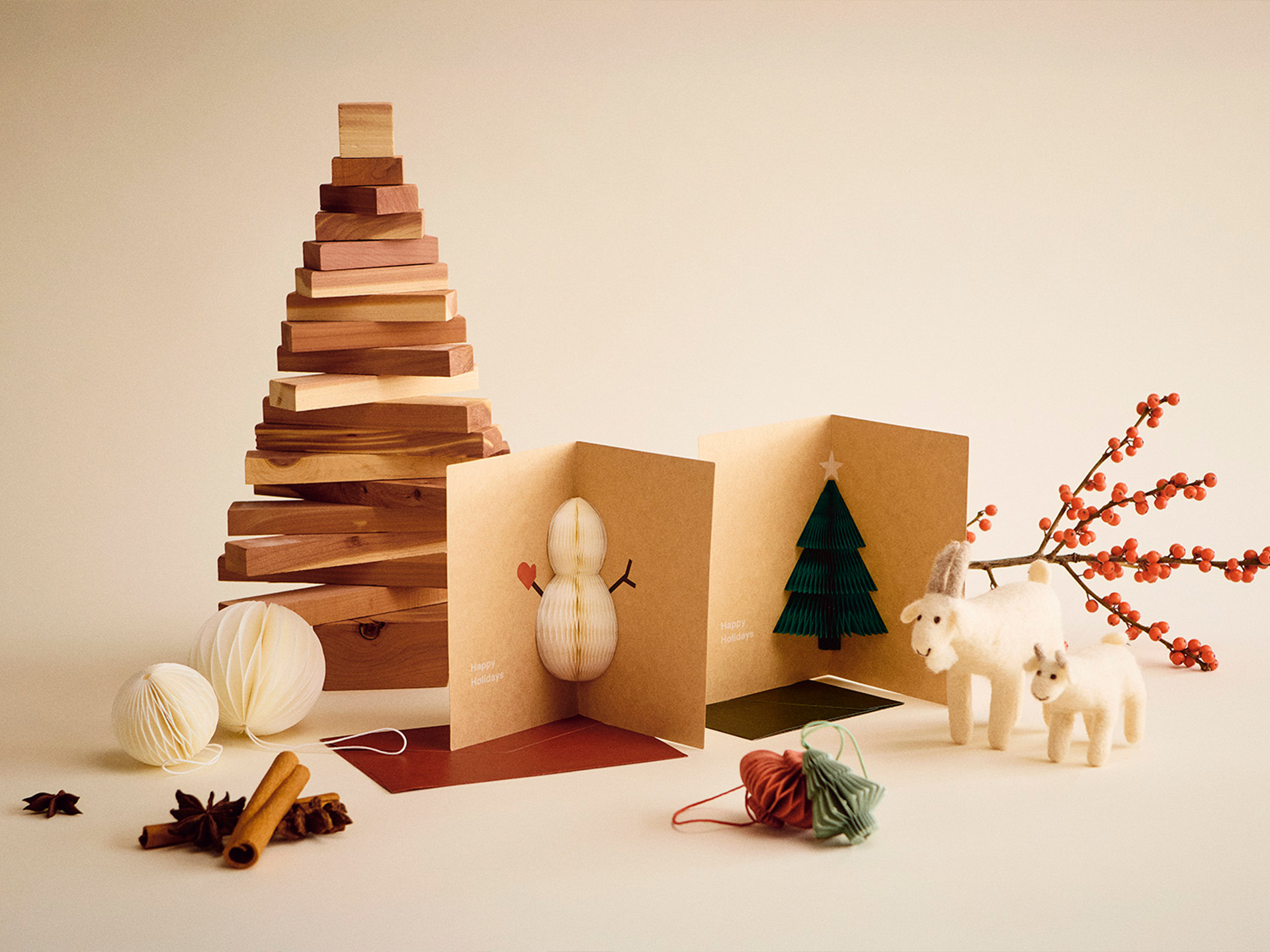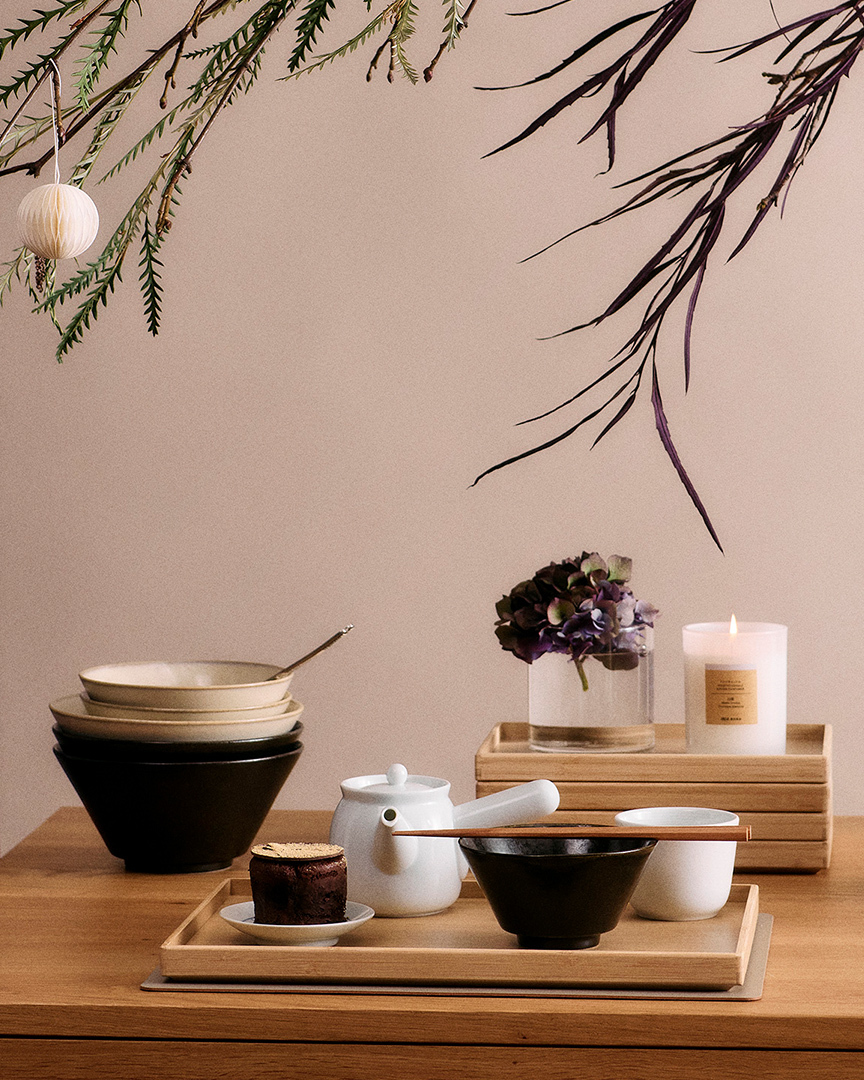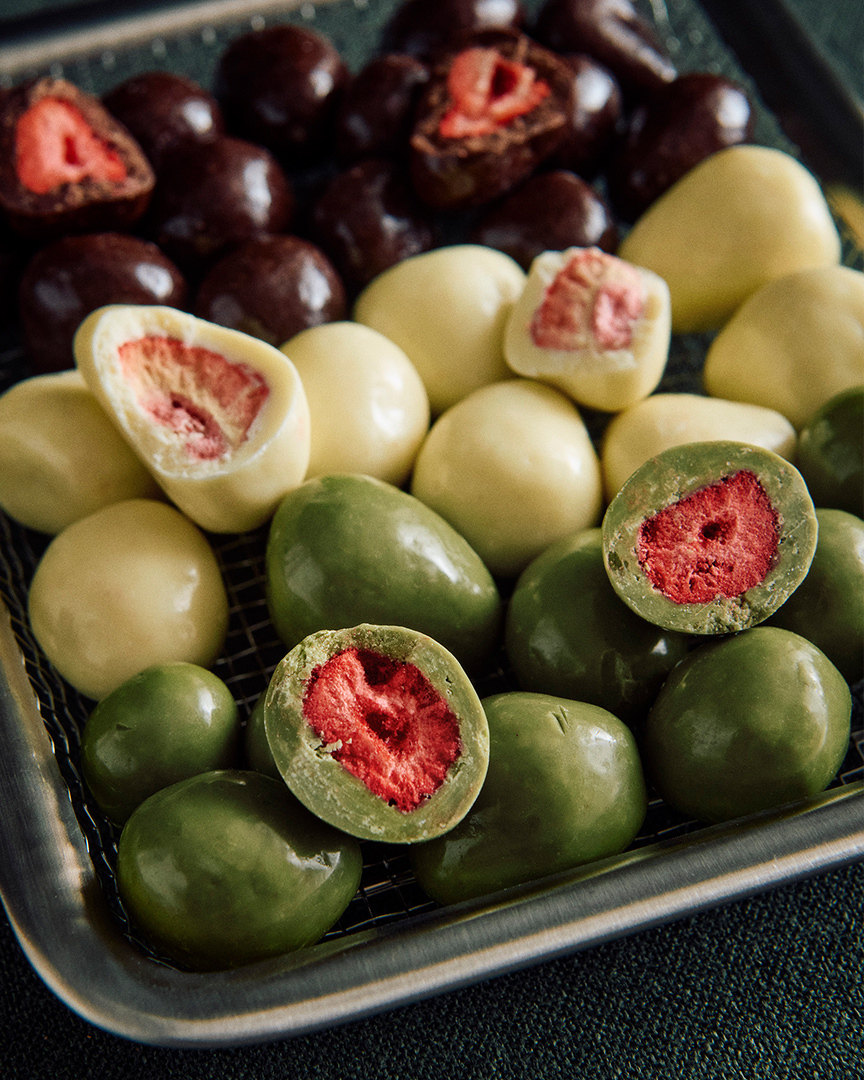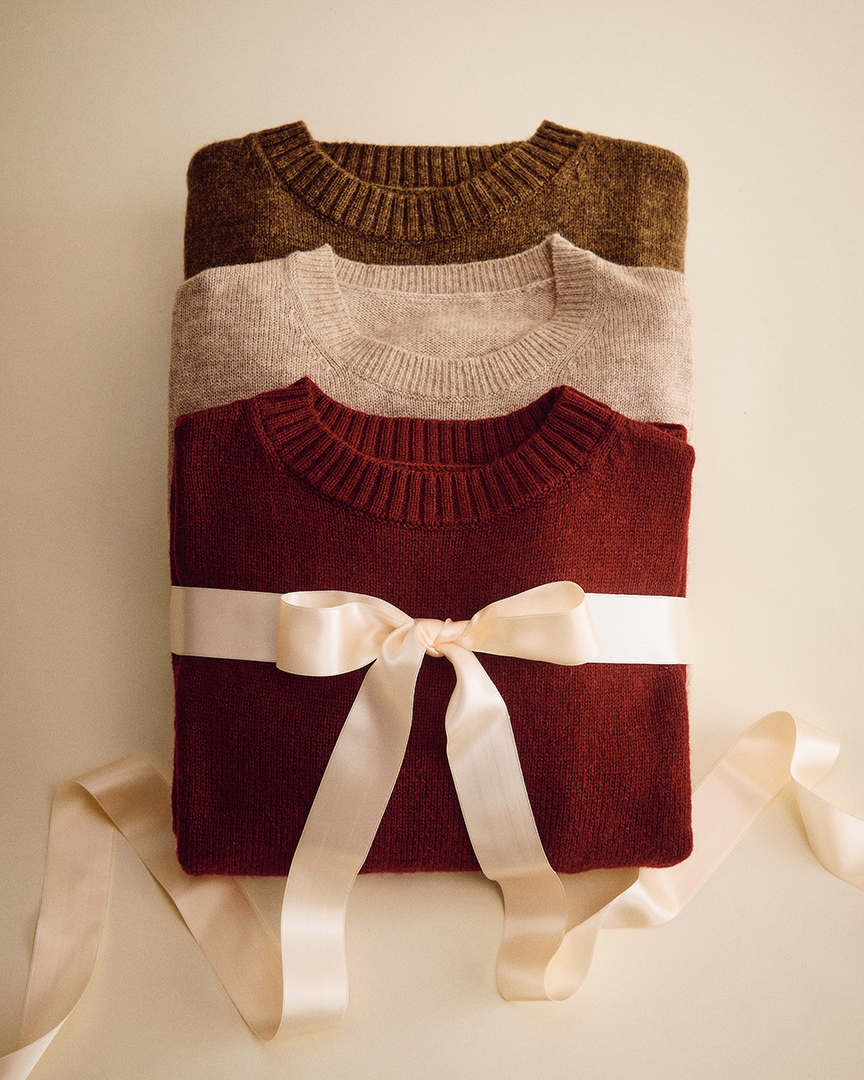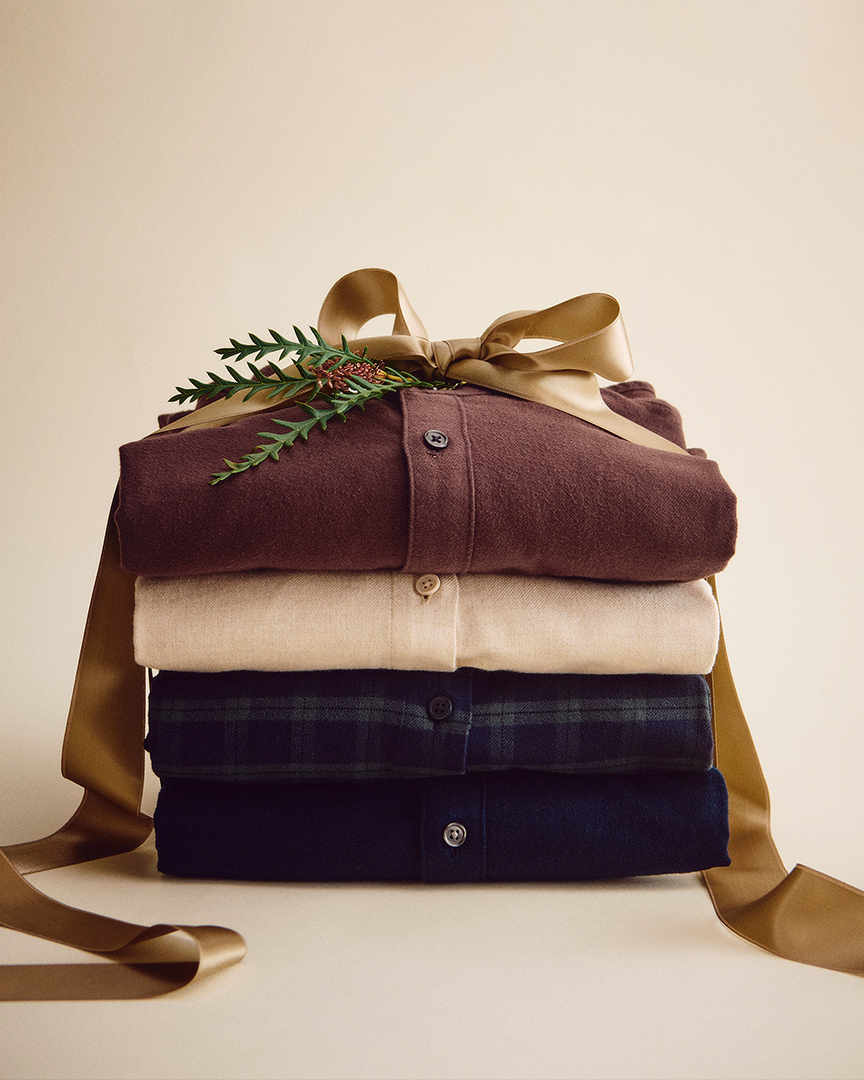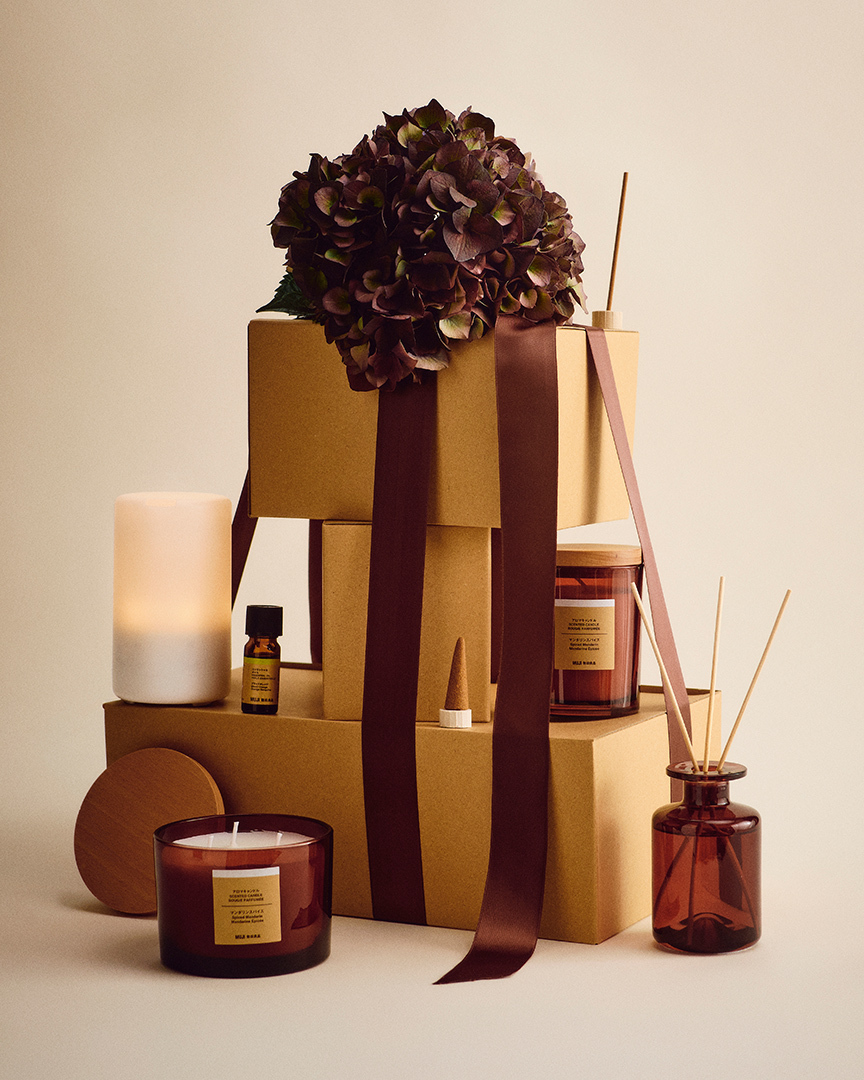*Until 28th February. Excludes large polypropylene storage items & furniture.
The Japanese Tradition of Year‑End Gifting
In Japan, exchanging seasonal gifts is an important tradition. While the summer custom of Ochūgen may not correspond to our European habits, the winter tradition of Oseibo is similar to Christmas and other Western end-of-year celebrations. Discover how this ritual reflects MUJI's philosophy, with thoughtful gifting and lasting memories.
Gratitude and strengthening relationships
In Japanese culture, gifts are expressions of respect, lasting bonds, affection, and gratitude. They are a way of thanking people for what they have given us, taught us, brought us, or allowed us to do, or simply for what their existence brings to our lives. Gifts also help to strengthen relationships between people, sometimes taking on a certain social obligation. And even more so than in Europe, choosing the perfect gift is a complex task, as it must not only please the recipient, but also reflect the relationship between the two people.
Oseibo: the tradition of winter gifts
In December, Oseibo provides an opportunity to “repay” loved ones for favours received during the year. Originally, this custom from the Edo period was intended for ancestors. Today, gifts are given to family, clients, colleagues, teachers, doctors, bosses, etc. And, unlike Christmas in Europe, they are sent from early to mid-December, ideally arriving before the 20th. Another notable difference is that the types of gifts are not quite the same. The most popular gifts are practical items and everyday consumables, such as condiments, beer, tea, canned foods, fruit, desserts, candles, toiletries, and so on. Perfectly in line with the MUJI philosophy, where luxury and extravagance give way to functionality.
Giving a gift with intention
In Japan, the intention and spirit with which a gift is given are very important. For example, it is customary to say that the gift is tsumaranai mon, which means “something uninteresting,” even if the gift is of very high quality—because the relationship between the two people is more important than the object itself. In addition, both people play an active role in the gift-giving process: the giver bows slightly while presenting the object with both hands, the other person refuses it at first, etc. A whole traditional ceremony contributes to the importance of the moment.
The art of gift wrapping
Gift wrapping, or tsutsumu, is considered an extension of the intention behind the gesture. It is an act of respect, just like the gift itself, and an art form in its own right. There are two main methods: furoshiki and washi. The first dates back more than 1,200 years and is based on a system of reusable squares of fabric, folded and tied in a skillful manner. Allowing for a certain amount of artistic creativity in the choice of material, colors, and knot, it has gained popularity in recent years due to its environmental benefits. The second is a unique form of paper, handmade from wood pulp and plant fibers.
MUJI's approach to gift-giving
MUJI's Japanese culture is particularly expressed during the holiday season. Minimalist and focused on the essentials, these thoughtful gifts are based on the values of simplicity, functionality, and versatility, in the purest Oseibo tradition. Practical and thoughtful, MUJI gifts feature sleek design, natural materials, meaning, and understated beauty. For everyone on the list, these thoughtful gifts and lasting moments enrich everyday life in subtle and durable ways, across six gift categories: sensory, cosy, creative, essential, Japanese, and Christmas special.
MUJI sensory gifts are items that delight, soothe or awaken the senses. Ideas to fill the home with scents, candles, diffusers, essential oils or incense. Treats to savour and share, such as chocolates or snacks. Or even ways to take care of oneself with the Fermented Booster range, cleansing oils and sensitive skin products.
MUJI cosy gifts are all about warmth, comfort and well-being. From flannel pyjamas, slippers and warm socks to warm blankets, Mochi cushions and loungewear. Made from fleece, jersey, cotton or flannel, they are all incredibly soft and comfortable.
MUJI's creative gifts are designed for artists. Beautiful pens, coloured pencils, notebooks and origami paper promise creativity and open up the imagination. They can also be used to organise the creative space, with cable cases, storage boxes, frames and diaries for planning future drawing and writing sessions.
MUJI's essential gifts bring together thoughtful items designed to make everyday life easier. By offering storage boxes, baskets and practical items, they ultimately bring freedom of mind and easier days to the Christmas tree. And luggage, travel accessories and other bottles embody a promise of adventure.
Japanese gifts from MUJI are designed for those who love Japanese culture. MUJI offers a wide range of products that reflect the philosophy and daily life of the archipelago: Hasami tableware, banko ware, hakuji, hakama pants, jinbei, Japanese utensils and cutlery (chopsticks, hinoki chopping boards, graters), calligraphy pens and Japanese food products are all examples of the country's unique lifestyle.
MUJI's special Christmas gifts include a range of festive decorations, gift wrapping, cards and toys that exude the atmosphere of Western holiday celebrations, but with MUJI's characteristic oriental touch. Toys made from Japanese cypress wood scraps, handmade wool felt animals, origami paper for making Christmas tree decorations, lucky Fortune Cans designed by Japanese artisans...
Every year with MUJI, the festive season is as minimalist as it is elegant and functional, creating lasting memories.
